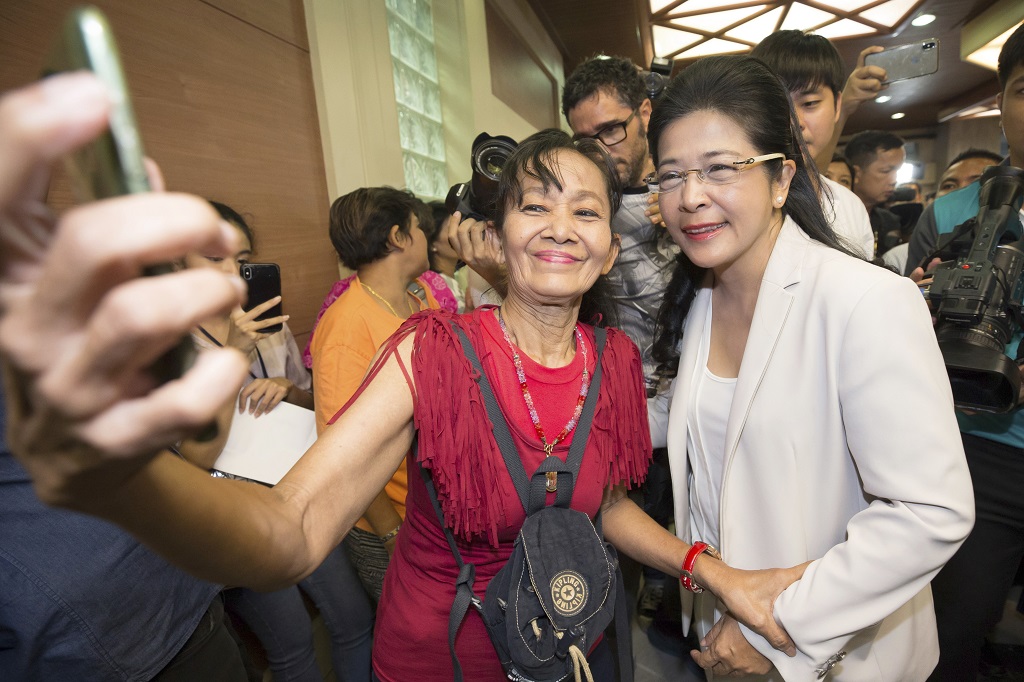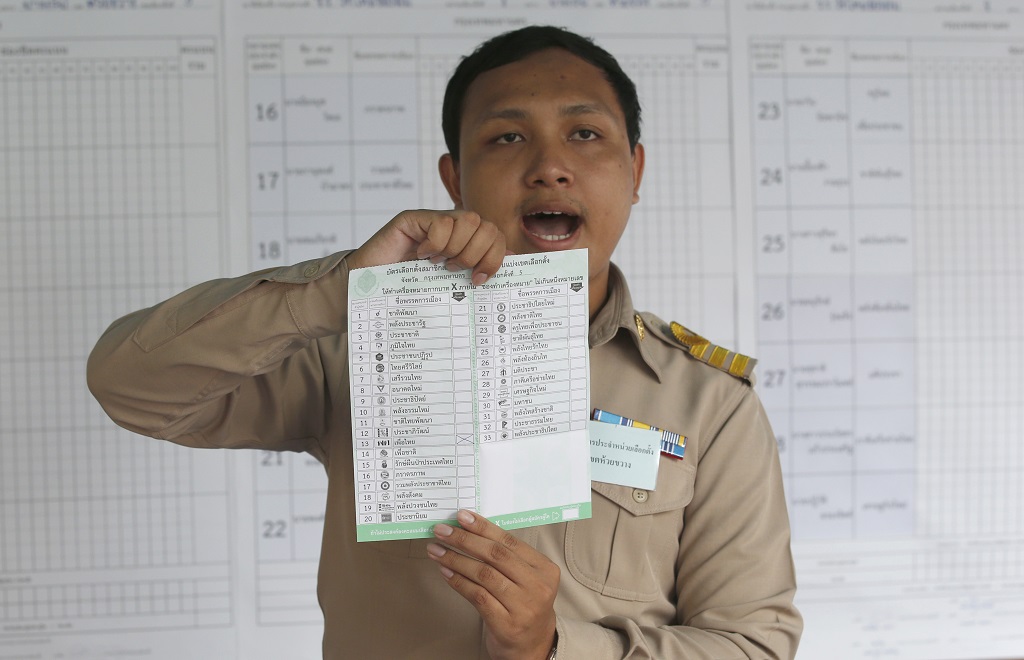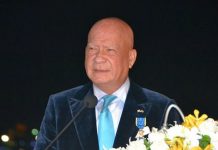
Bangkok (AP) — Nearly five years after a coup, Thailand voted Sunday in a long-delayed election pitting a military-backed party against the populist political force the generals overthrew.
An opinion survey taken in the days before the election, and released after voting closed, indicated that the governing party ousted in the 2014 coup would win the most parliamentary seats but not enough to govern alone. A military-backed party would win the second-highest number of seats, according to the Suan Dusit survey.
Prime Minister Prayuth Chan-ocha, the blunt-speaking army chief who led the coup, is hoping to extend his hold on power after engineering a new political system that aims to stifle the influence of big political parties not aligned with the military.
Voting stations closed at 5 p.m. and meaningful results were expected within several hours. The formation of a new government, likely to be unstable and short-lived, could take weeks of haggling.
About 51 million Thais were eligible to vote. Leaders of political parties opposed to military rule urged a high turnout as the only way to derail Prayuth’s plans.
Prayuth was among the first to vote in Bangkok, the capital, arriving in a black Mercedes after polling booths opened at 8 a.m.
“I hope everyone helps each other by going to vote today as it’s everyone’s right,” he told reporters after voting. He played golf later in the morning before heading to an army base to await results.
The party’s leader, Sudarat Keyuraphan, said after voting in Bangkok’s Ladprao district that she was confident of winning.
“I don’t say it’ll be a landslide. I don’t know. Depends on the people. But I think we can win this election,” she said.
First-time voter Napasapan Wongchotipan said she hopes for positive changes after the election.
“I have no idea what the results will be like,” she said. “But I do wish that the party that we will get, the party that wins the votes, will come in and improve our country.”

Thais were voting for a 500-seat parliament that along with a 250-member junta-appointed Senate will decide the country’s next prime minister. That setup means a military-backed figure such as Prayuth could become leader even while lacking a majority in parliament.
“The biggest challenge of this election is whether it will mark the beginning of a transitional democracy in Thailand. I hope to see that, but it seems to be a very dimmed hope,” said Siripan Nogsuan Sawasdee, a political scientist at Bangkok’s Chulalongkorn University.
“It might end up with the election being used as a façade for a new authoritarian ruler or we might end up with another round of conflicts and polarization,” she said.
Political parties and their main leaders held their final major rallies on Friday evening in Bangkok.
Sudarat said Pheu Thai would fight to overcome constitutional hurdles erected against it by Prayuth’s regime.
“In 2014, they took power with the barrel of a gun, by a coup,” she said. “In 2019, they are trying to take away the people’s power again through crooked regulations under the constitution.”
When it seized power in 2014, the military said it was to end political unrest that had periodically turned violent and disrupted daily life and the economy. The claim has been one of the few selling points for the gruff Prayuth, who according to critics has overseen a period of growing inequality and economic hardship in Thailand.
“I want things to improve,” Narate Wongthong said after voting. “We had too many conflicts in the past and I want to see lots of people come out and vote.”
Associated Press journalists Hau Dinh, Grant Peck, Kaweewit Kawjinda and Tassanee Vejpongsa contributed to this report.




